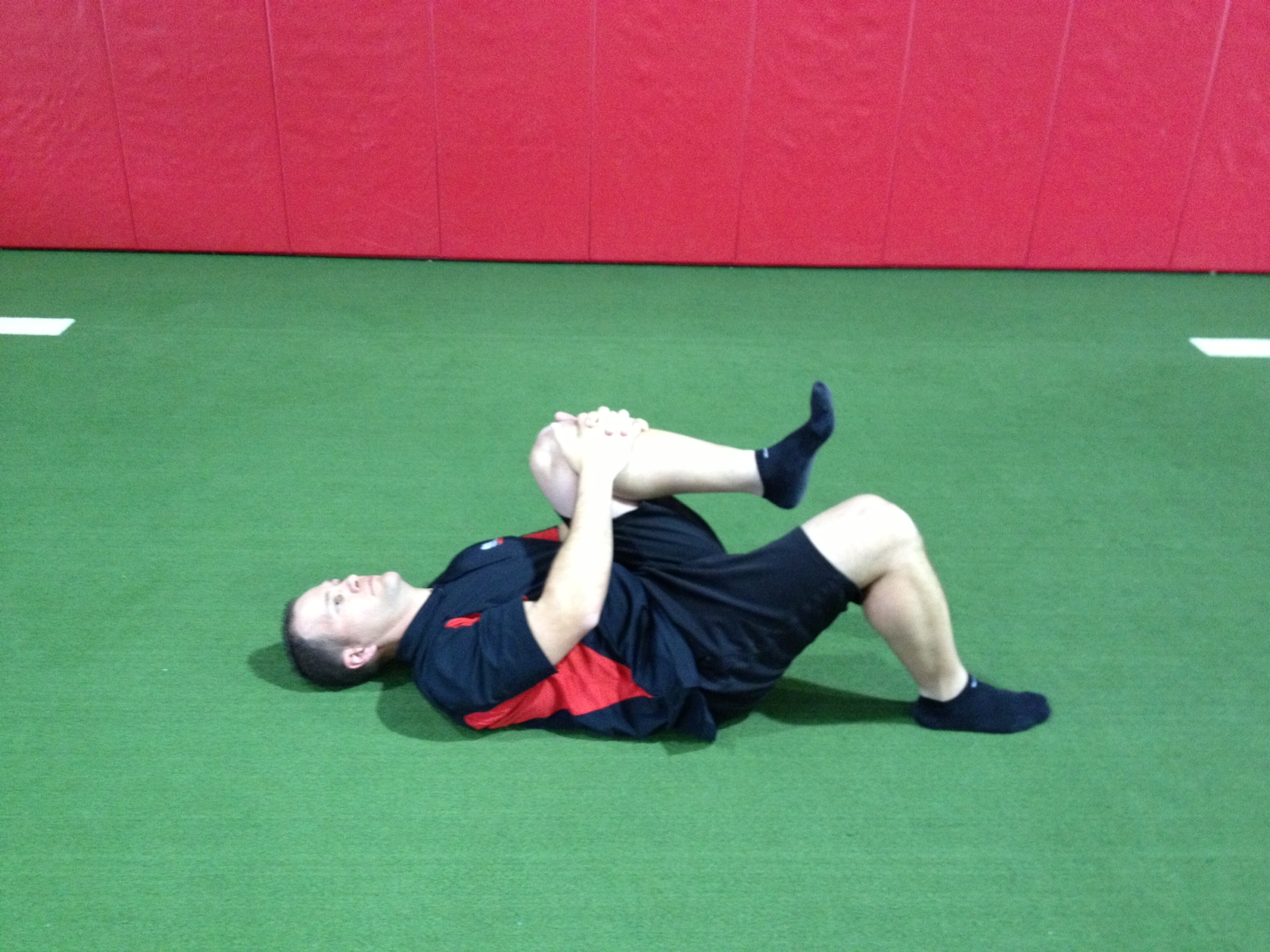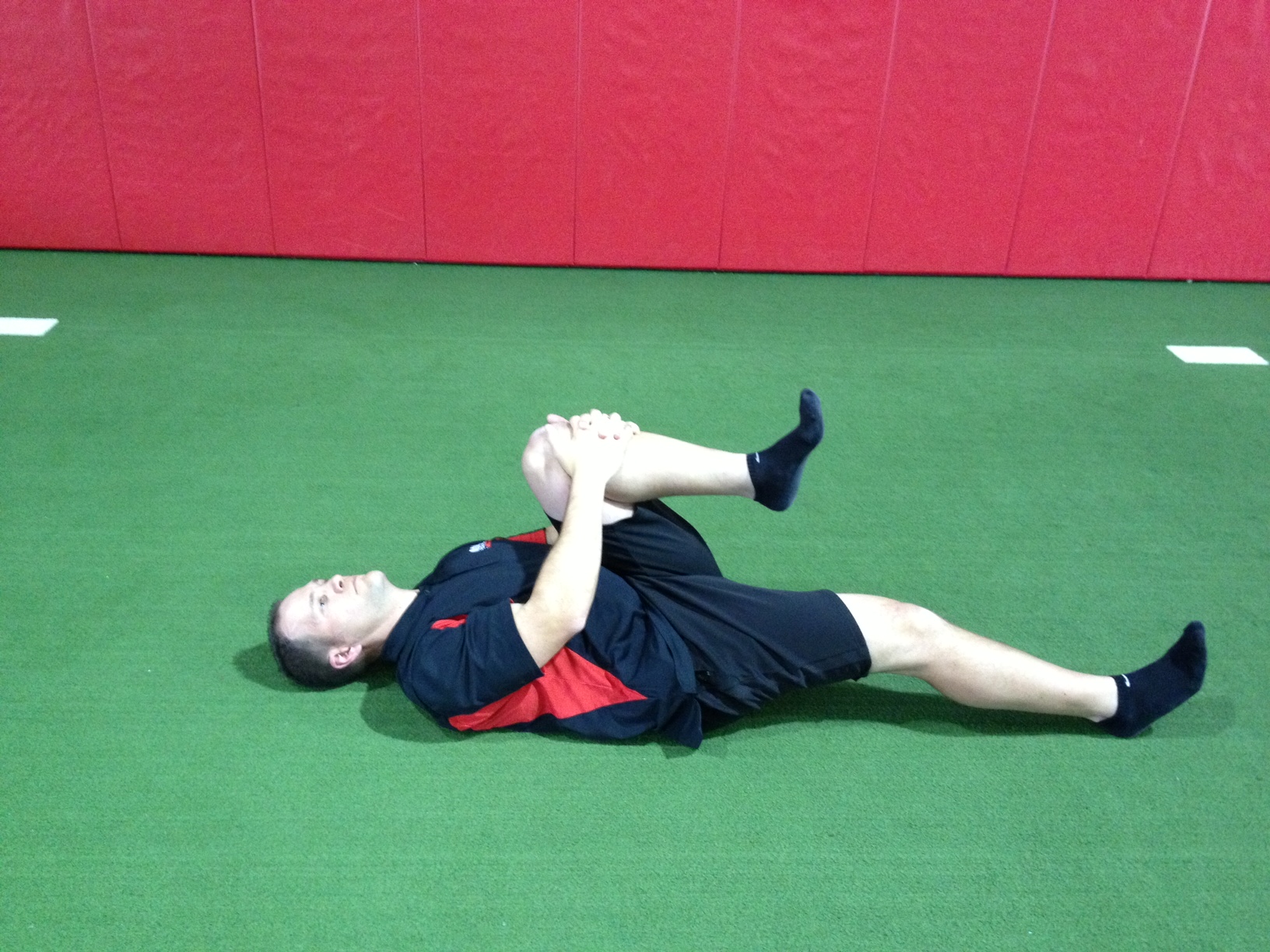
Tightness in the hip flexors, especially the iliopsoas, can have a negative impact on the lumbar spine and pelvic motion. Excessive tightness creates undue stress and shear force on the lumbar spine particularly during hip extension.
It is important to bear in mind the relationship between the iliopsoas and the lumbar vertebrae when choosing abdominal exercises such as scissor kicks, leg lowering, thrown downs, etc. Without adequate mobility and proper abdominal control, the hip flexors can exert harmful loads on the spine through reverse muscle action. Consequently, the legs act as a long lever and over time certain exercises may cause an injury.
This particular exercise is described by Shirley Sarhmann in her book, Diagnosis and Treatment of Movement Impairment Syndromes, and is an excellent corrective exercise that can be used for resolving hip flexor tightness.
Execution:
Begin in a hook lying position (knees and hips bent). Next, pull the left knee to the chest and hold it there with both hands. Then, slowly extend the right knee while pulling the navel towards the spine to help maintain a neutral spine.
Perform 5-10 repetitions alternating legs. Extension of the sliding leg should be stopped when the client feels a loss of the neutral spine or the femur begins to rotate or abduct to maintain full hip extension.
It is important to bear in mind the relationship between the iliopsoas and the lumbar vertebrae when choosing abdominal exercises such as scissor kicks, leg lowering, thrown downs, etc. Without adequate mobility and proper abdominal control, the hip flexors can exert harmful loads on the spine through reverse muscle action. Consequently, the legs act as a long lever and over time certain exercises may cause an injury.
This particular exercise is described by Shirley Sarhmann in her book, Diagnosis and Treatment of Movement Impairment Syndromes, and is an excellent corrective exercise that can be used for resolving hip flexor tightness.
Execution:
Begin in a hook lying position (knees and hips bent). Next, pull the left knee to the chest and hold it there with both hands. Then, slowly extend the right knee while pulling the navel towards the spine to help maintain a neutral spine.
Perform 5-10 repetitions alternating legs. Extension of the sliding leg should be stopped when the client feels a loss of the neutral spine or the femur begins to rotate or abduct to maintain full hip extension.
 |
|
Application:
Teaching clients to activate their abdominals to maintain spinal alignment is essential for reducing shear and stress with movement. Hip flexor tightness is the norm for most, so eliminating anterior shear forces will reduce injury risk, while improving mobility will serve to improve posture and enhance core/pelvic control.
Additional note:
If the tensor fasica lata (TFL) is short, it may be necessary to allow the client to slide the leg into extension with the hip in abduction until the hip begins to loosen up. If so, gradually move the hip to a more neutral alignment once the hip flexor mobility improves.
Brian Schiff, PT, OCS, CSCS, is a licensed physical therapist, respected author and fitness professional. Currently, he serves as the supervisor at the Athletic Performance Center in Raleigh, NC. Brian presents nationally at several professional conferences and seminars on injury prevention, rehab and sport-specific training. For more cutting edge training information, subscribe to his monthly Training & Sports Medicine Update at www.BrianSchiff.com.

















